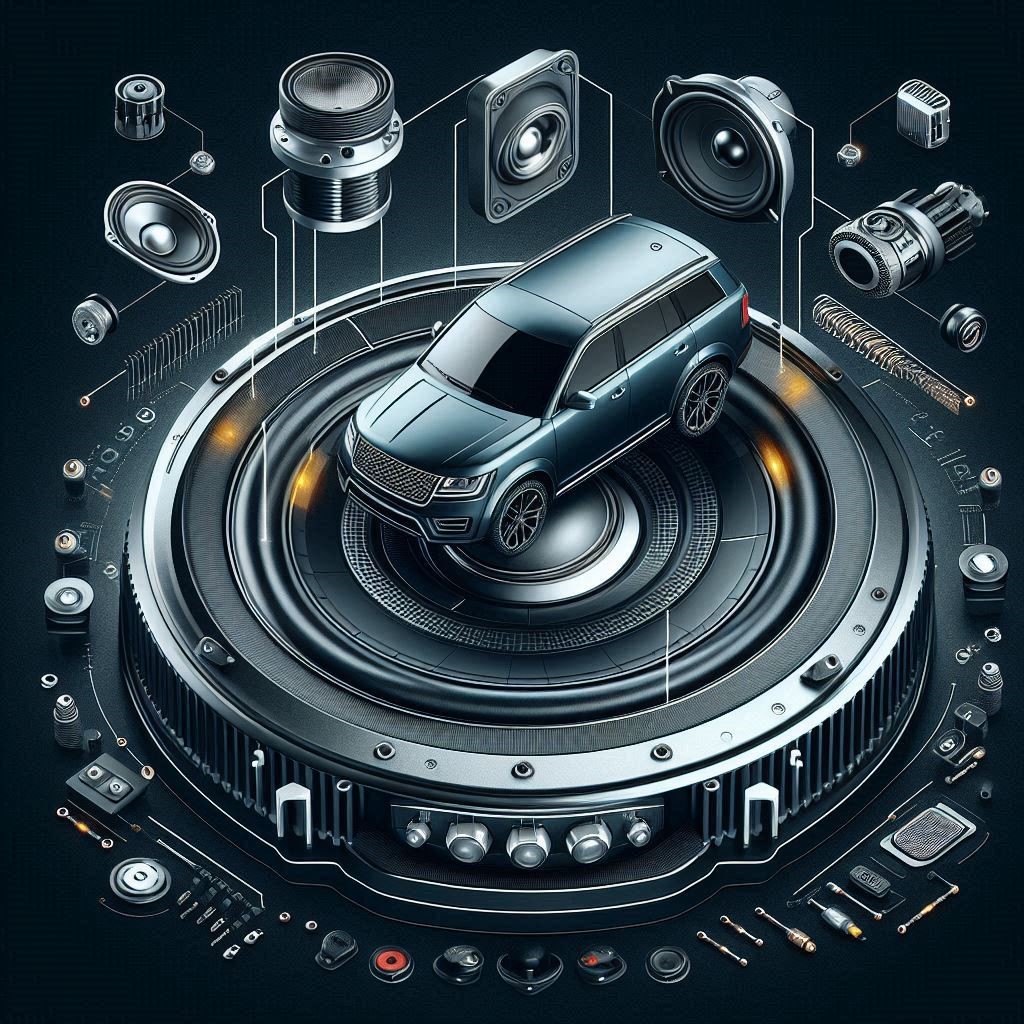The automotive speaker market is undergoing a significant transformation, driven by a combination of evolving consumer expectations and rapid technological advancements. As the global automotive industry transitions towards connected, electric, and autonomous vehicles, the demand for superior in-vehicle audio systems has intensified. This growing emphasis on in-car entertainment and personalized acoustic experiences has made the automotive speaker market an increasingly attractive segment for investors.
The Role of Technology in Reshaping Automotive Audio
One of the primary drivers behind the surge in the automotive speaker market is the integration of advanced technologies such as artificial intelligence (AI), voice recognition, and immersive surround sound systems. Today’s consumers expect their vehicles to provide not only superior driving performance but also premium infotainment experiences. High-definition speakers equipped with noise-canceling technology, spatial sound capabilities, and customizable equalization are becoming standard features in mid to high-end vehicle models.
Automotive manufacturers are collaborating with premium audio brands like Harman Kardon, Bose, Bang & Olufsen, and JBL to elevate in-car audio systems. Furthermore, the advent of electric vehicles (EVs), which produce minimal engine noise, has further heightened the importance of sophisticated speaker systems for enhancing cabin ambiance. Technologies such as 3D sound processing and headrest-integrated speakers are redefining what passengers can expect from in-car entertainment.
Surge in Demand for Personalized Entertainment
Customization has become a key differentiator in the automotive speaker market. With increasing adoption of AI-powered voice assistants like Amazon Alexa Auto and Google Assistant, consumers are seeking personalized, voice-controlled entertainment systems within their vehicles. Automakers are responding by integrating adaptive sound environments tailored to individual preferences, ensuring every passenger experiences optimal audio quality regardless of seat position.
Additionally, the rise of ride-sharing and autonomous vehicle trends is reshaping audio design philosophies. As vehicles transform into mobile living spaces, personalized audio zones for each passenger are gaining attention. This presents new opportunities for speaker manufacturers to innovate and diversify their offerings.
The global automotive speaker industry is expected to reach USD 12.92 billion in 2029 from USD 9.49 billion in 2024, at a CAGR of 6.4% during the forecast period.
Download PDF Brochure @ https://www.marketsandmarkets.com/pdfdownloadNew.asp?id=192832677

Growing Investor Confidence in Automotive Audio Innovation
The combination of technological advancement, growing demand, and diversification of applications is driving substantial investor interest in the automotive speaker market. Venture capitalists and private equity firms are increasingly backing startups focused on specialized automotive acoustics, noise-cancellation systems, and next-gen speaker design.
Major automakers are also investing heavily in proprietary audio technologies or forming strategic alliances with leading audio brands. The competitive landscape is witnessing both organic growth and acquisition-led expansions as stakeholders seek to capitalize on this booming market.
Regional Growth and Market Opportunities
While developed markets in North America and Europe continue to lead in terms of premium audio integration, Asia-Pacific is emerging as a key growth hub. Rapid urbanization, growing middle-class populations, and rising vehicle ownership in countries like China and India are driving significant demand for enhanced automotive infotainment systems.
Emerging trends such as electric mobility adoption and smart city initiatives further reinforce the growth trajectory of the automotive speaker market in the Asia-Pacific region. Strategic partnerships between Asian automakers and global audio companies are fueling technological localization and customized audio offerings tailored to regional preferences.
Conclusion: The Road Ahead for Automotive Speakers
As the automotive industry embraces the next wave of innovation through electrification, connectivity, and autonomous technologies, the importance of advanced, personalized audio solutions will only intensify. With consumer expectations rising and technological boundaries expanding, the automotive speaker market represents a dynamic investment opportunity.
For investors, OEMs, and audio technology providers, the future of automotive sound systems is not just about volume or clarity — it’s about creating immersive, customized experiences that define the future of in-vehicle entertainment. The intersection of audio technology and automotive innovation is set to attract even greater investor interest in the years to come.
Semiconductor and Electronics Market Research Reports
Frequently Asked Questions (FAQ) – Automotive Speaker Market
1. What is driving the growth of the automotive speaker market?
The growth is primarily driven by increasing consumer demand for personalized in-car entertainment, technological advancements in sound systems, and the rise of connected and electric vehicles which emphasize premium cabin experiences.
2. How is technology influencing automotive speaker development?
Advanced features like 3D surround sound, AI-powered voice assistants, noise cancellation, and headrest-integrated speakers are reshaping automotive audio. Collaborations with premium audio brands are also common to enhance the sound experience.
3. Why are investors showing interest in this market?
Investors are drawn by the market’s strong growth potential, fueled by the shift toward autonomous and electric vehicles, rising consumer expectations, and new business opportunities through partnerships between automakers and audio technology firms.
4. Which regions are expected to show the highest growth?
While North America and Europe lead in premium installations, Asia-Pacific is emerging as the fastest-growing region due to increasing vehicle ownership, expanding middle-class populations, and technological advancements in emerging markets.
5. What role do electric vehicles (EVs) play in boosting the automotive speaker market?
With quieter EV engines, the focus on enhancing in-car audio experiences has intensified. This makes advanced speaker systems an important feature for EV buyers, pushing manufacturers to integrate premium sound technologies.
